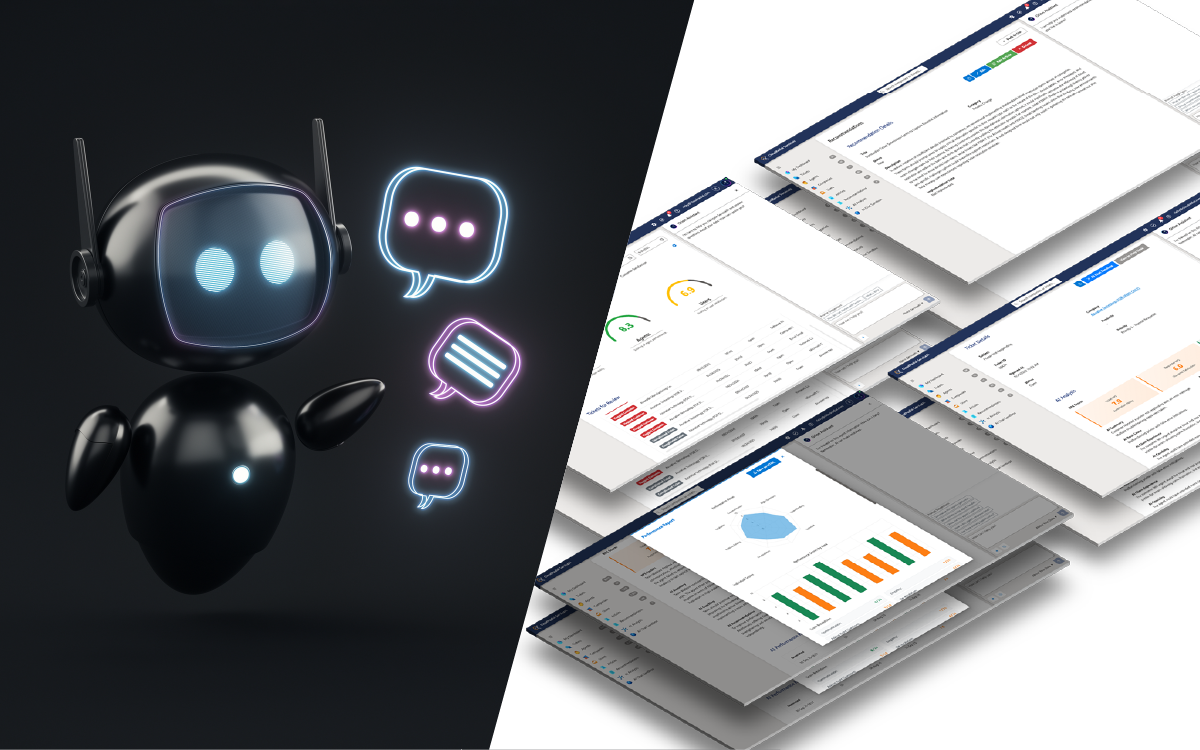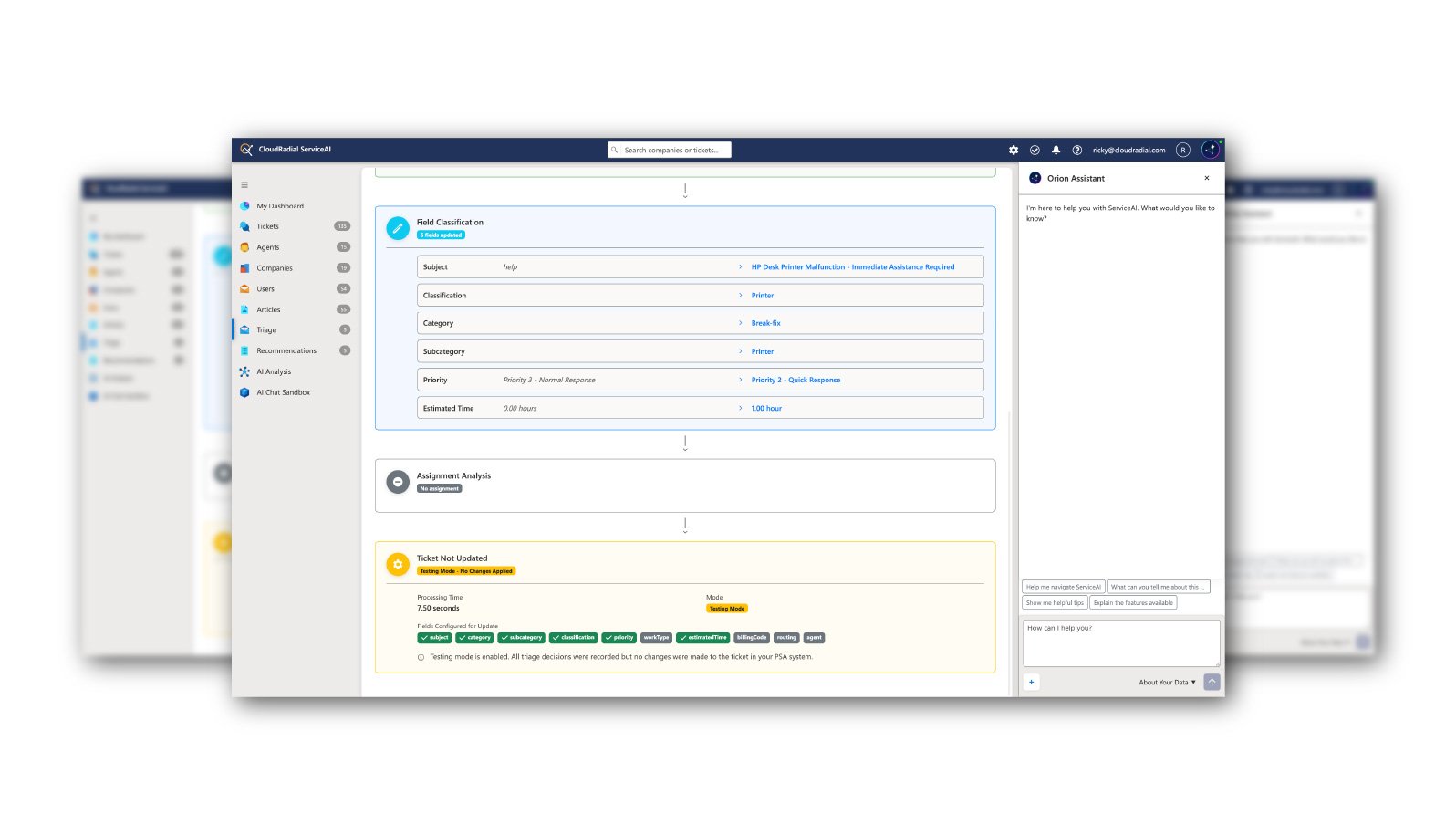How to Pilot AI at Your MSP Without Blowing Up Your Client Relationships
Here's the thing about AI pilots that nobody in the vendor world wants to acknowledge: MSPs don't get to experiment freely. You're not a SaaS startup...
Get everything you need for the ultimate client experience
Enterprise-grade infrastructure with the flexibility MSPs demand
Perfectly tailored AI that knows your specific MSP

Build your own Shopify-like store with your PSA products & distributors
Have clients to submit tickets directly to your PSA, freeing up your team's time
Pre-triage and route tickets correctly with the help of AI
Deliver instant, accurate answers that can help achieve zero-touch resolution
You'll learn things like how to add revenue without adding cost, MSP best practices, and how to master client management.

In the world of MSPs, the concept of a good client portal remains difficult to define. MSPs that focus on their client-facing approach eventually find themselves asking one critical (and challenging) question:
What exactly should my client portal do?
For many MSPs (and PSA tools), the answer starts and ends with some sort of ticketing feature.
Seems simple enough, right?
Most MSPs quickly realize that portals focused solely on ticketing are horrible at gaining client adoption. It’s not that ticketing is a lousy feature per se – rather, the core issue is that users are just not looking for a ticketing portal, especially when they can send an email or call in for help.
In other words, giving them a URL to something they need to put extra effort to access and use doesn’t appear to make their lives easier. So, they often won’t use it.
To create a client portal that clients want to use, you need to think bigger. Let’s examine what exactly you need to deliver to get a killer client portal.
A great client portal can keep your clients engaged with your MSP to improve the overall “stickiness” and happiness of the client throughout the relationship.
However, that is only true if the portal has anything of value to add to the relationship.
To address what to put into your portal, you need to focus on the features and overall approach to capitalize on that value. We recommend using a combination of these six things:
Want people to submit tickets through your portal? Tell them why it’s essential in the first place.
Educate users on the difference between MTTT (mean time to ticket) and MTTR (mean time to resolution). In short, it’s not about how fast you can submit a ticket, but how quickly you can get the ticket resolved.
Your portal should help pre-triage tickets, which means that users get their answers faster. That means less downtime and more money in their pockets. Without proper context to portal-based ticketing, clients think you’re just stonewalling them with forms when in reality, you’re trying to help them faster and more precisely than ever before.
With the right client portal, you can have a collaborative area that delivers value to everyone that interacts with it. Ideally, you’ll have the option to have key users within client companies add their own content to the portal for their company’s benefit.
As such, your portal should include key Intranet functions of the portal where their team can add KB articles, courses, line of business apps, and more. These client-facing features transform the portal into a valuable resource that helps your clients get their work done better on a day-to-day basis.
In doing so, you’re ensuring that the portal always delivers on value.
When clients need to request new things from your MSP, it’s cumbersome to set up meetings or request things via email (which are easy to miss). Make sure that your portal is a space that you can use to communicate info about your services.
That way, it’s easy for them to shop/request things online 24/7. It’s not just a good user experience – it’s also a way to generate more sales passively.
Training drives a lot of adoption for portals. With training built into your portal, you can deliver tremendous value to the clients by giving them a way to strengthen work skills, reduce errors, and improve their overall operational maturity.
Never forget that the person that gets the most value from the portal should be the one that pays the MSP bill. Be sure to allocate a separate area limited by user permissions that includes reporting and strategy-focused features. These should be centered around giving the administrator visibility into their operations. These features may consist of billing and invoices, infrastructure reports, dashboards, and more.
Educate your company admins on the information they get from the portal. Walk them through how they can check the data at any time to keep them in control of their IT spend.
There are plenty of things to consider for a client portal that delivers value. And here’s the best part – it already exists, and it’s called CloudRadial.
With CloudRadial, our goal is to get you to think from the client back rather than from service out. Building something a client wants and uses that helps them do their job is the goal here.
In other words – turning “your” portal into “their” portal is the ultimate home run.
Be sure to book a demo of it here so you can see firsthand that CloudRadial isn’t just a software product. The portal is comprised of a whole team, process, education and strategy that helps you step up your overall client engagement.

Here's the thing about AI pilots that nobody in the vendor world wants to acknowledge: MSPs don't get to experiment freely. You're not a SaaS startup...

Let's get something out of the way early: when most MSP owners hear "AI for your service desk," they picture a chatbot. Some widget sitting on a...

CloudRadial ServiceAI is purpose-built AI for MSPs, trained on your tickets, your clients, and your solutions. Get accurate support suggestions,...